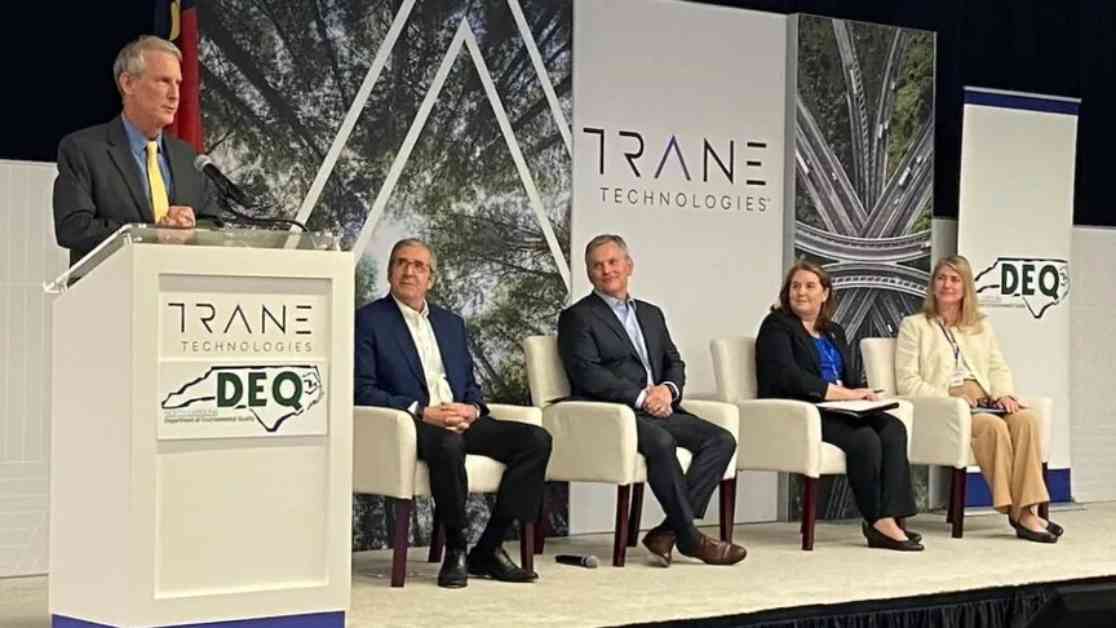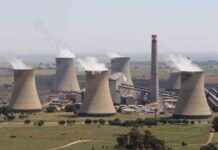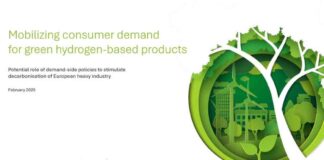A recent cold snap in Asheville, North Carolina put Sophie Mullinax’s electric appliances to the test. Despite temperatures plummeting to a chilling 9 degrees Fahrenheit, her heat pumps kept her cozy without a gas furnace. This cozy scene inside her home emphasized her belief in the benefits of electrification.
Sophie Mullinax is the Chief Operating Officer of Solar CrowdSource, a platform connecting solar panel customers with high-efficiency electric appliances. Since last spring, the company has been gearing up for North Carolina’s groundbreaking Energy Saver program. Launched in mid-January, this initiative offers over $208 million in federally funded rebates to aid low and moderate-income homeowners in making the switch from gas to electric appliances.
Mullinax firmly believes that the electric alternatives to fossil fuel technologies perform the same tasks more efficiently. She highlights that they have a lower impact on the environment, promote better health, and often result in cost savings. Solar CrowdSource, collaborating with the city of Asheville and Buncombe County, anticipates that the rebate program will smoothen the path towards achieving the community’s climate goals through electrification.
The Genesis of the Incentive Program
This incentive program in North Carolina is a result of the Inflation Reduction Act, part of the 2022 federal climate law. This law, allocating nearly $400 billion for clean energy and efficiency, faces challenges due to recent executive orders by President Donald Trump. While many parts of the law focus on large-scale renewables, the $8.8 billion home-rebate program aims to reduce greenhouse gas emissions on a household level by encouraging efficiency improvements and the adoption of electric appliances.
Studies reveal that about 35% of home energy consumption in North Carolina is wasted due to inefficient systems and poorly insulated structures. Although the state uses less fossil fuel for home appliances compared to other regions, there is still room for improvement. Approximately a third of homes in North Carolina are heated with fuels other than electricity, contributing to the state’s carbon footprint.
Challenges and Opportunities Ahead
Despite the energy-saving potential, North Carolina faces challenges in promoting electrification. Local governments lack the authority to restrict gas hookups, and utility companies have been limited in offering incentives for fuel switching. However, the recent statewide rebates, reaching up to $14,000 per home, mark a significant stride towards incentivizing electrification.
The Energy Saver North Carolina program focuses on low and moderate-income households, offering free projects to those earning below 80% of the median income. The push towards electrification aims to address not only environmental concerns but also issues of energy affordability and health. By transitioning to cleaner energy sources, households can reduce their carbon footprint and indoor pollution levels.
This robust initiative, backed by federal funding and local partnerships, is poised to create thousands of jobs and enhance workforce development across the state. Despite concerns about the program’s deployment, including contractor training and outreach strategies, Governor Stein remains optimistic about its potential impact on North Carolina’s energy landscape. As the program unfolds, continuous improvement and community engagement will be crucial in realizing the full benefits of the Energy Saver rebate program.














